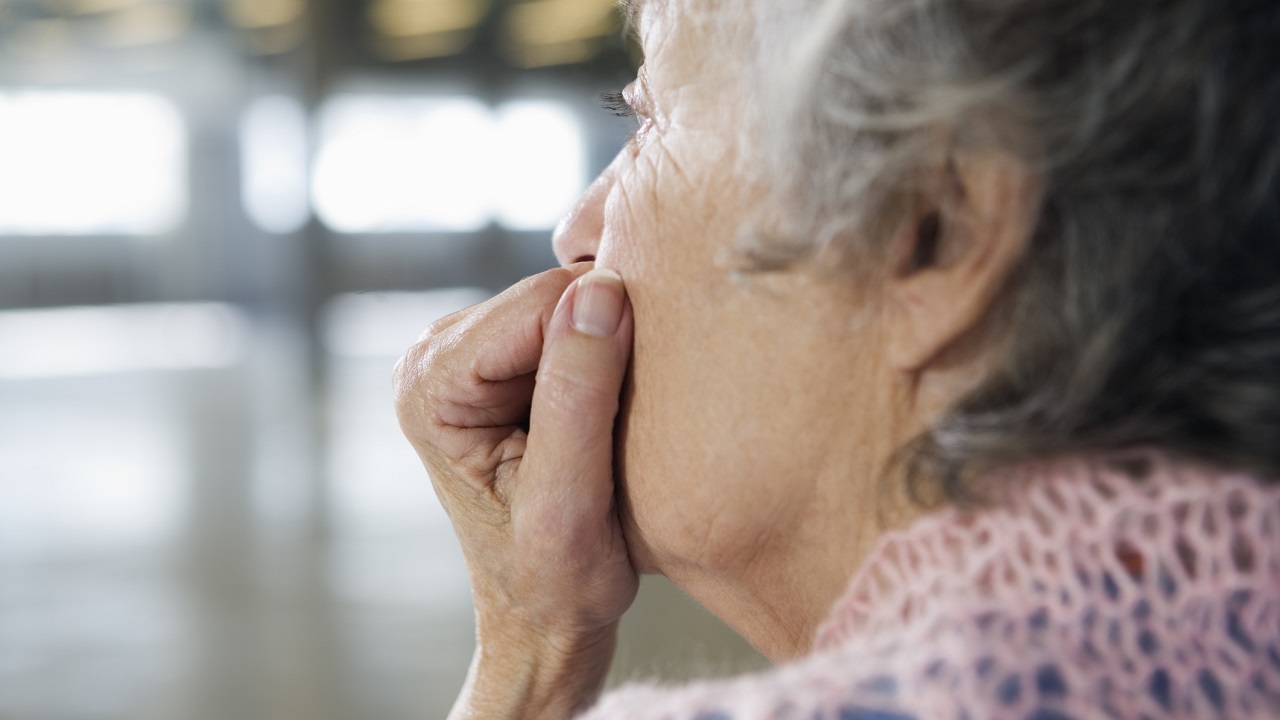This morning, you decided that a quick trip to the grocery store would be the perfect thing to get you and your loved one engaged and out of the house. Unfortunately, outings with dementia patients are notoriously unpredictable and can be chaotic.
As the two of you are walking down an aisle in your neighborhood grocery store, your loved one launches into a profanity-laced tirade without warning. It is foul enough to make you want to crawl underneath the shopping cart and pretend to be invisible. Since that’s not an option, what do you do?
The Importance of Outings for Dementia Patients
Any dementia caregiver who has been mortified by a loved one’s public meltdown has contemplated limiting the frequency of their outings. This is especially true for Alzheimer’s and dementia patients who have lost their social filters (think cursing and rude comments), become quick to anger or violent, experienced delusions or hallucinations, or begun exhibiting inappropriate sexual behavior. As a loved one’s cognitive abilities decline, changes in their personality, moods and behaviors are likely to come and go. Unfortunately, the unpredictable nature of Alzheimer’s disease and other types of dementia makes it nearly impossible for family caregivers to anticipate dementia outbursts and the onset of new behavioral symptoms.
While it may be tempting to keep a dementia patient at home where they are safe and cannot offend people, this isn’t always the best option. Fresh air, sunshine, social interaction, increased activity and changes in environment are crucial for keeping a dementia patient mentally and physically active and engaged. In many cases, carefully planned outings can minimize loneliness, restlessness, stress and agitation.
As a loved one’s abilities continue to decline, it will probably become increasingly difficult to run errands, enjoy the outdoors, dine at restaurants, see a movie and go on other outings together. Incontinence, wandering and drastic changes in mobility often occur in the middle and late stages of the disease, so it’s important to continue doing “normal” things together while you still can. Yes, that means that dementia caregivers must contend with potentially inappropriate and embarrassing dementia outbursts while in public, but there are ways to prevent and defuse agitation and handle meltdowns with tact.
4 Tips for Dealing With Public Dementia Outbursts
Keep Your Cool
Remaining calm is the key to handling many different types of dementia behaviors. A level-headed approach will allow you to think more rationally. Oftentimes, your serene attitude can rub off on your loved one as well. Keeping your composure is challenging when you’re flustered. While you can’t control your loved one’s emotions and behaviors, you can control how you react to them. Your ability to actively involve a dementia patient in your daily routine is dependent on your empathy and understanding that you are both doing the best that you can.Protect Your Privacy
When dealing with a public dementia outburst, try to downplay the situation. People love to gawk, but if you coolly tell onlookers that there’s nothing to see here, they’ll be more likely to divert their attention away from the person who is making a scene. If possible, discretely note that your loved one has dementia, which diminishes their ability to control their moods and behaviors.
Some seasoned caregivers recommend writing out or printing up small cards with this explanation on them to hand off to people who encounter you and your loved one on a bad day. You can slip one to your waiter or waitress while dining out or to your cashier while checking out at a store. This unspoken communication is less likely to agitate your loved one further compared to announcing their impairment to a bunch of strangers.
Note that a cordial apology and brief explanation are all you need to provide. Getting caught up in the details or expounding upon your embarrassment will only draw more attention to the issue at hand. According to the Alzheimer’s Association, an estimated 5.8 million older Americans are living with Alzheimer’s disease in 2020, and this number is projected to more than double to 13.8 million by 2050. It’s likely that many of the people you and your loved one encounter while out and about have some knowledge of or experience with dementia. If they don’t, then consider your loved one’s public outburst a valuable learning experience!Find What Triggered the Outburst
Try to determine what may have prompted your loved one’s reaction and remove it (or yourselves) from the situation. Sometimes the cause may be something as simple as hunger, thirst, fatigue, pain or the need to go to the restroom. An environment with too much external stimuli, such as loud noises, running children, large crowds or bright lights, may trigger anxious or aggressive behaviors. If you can pinpoint the cause of an outburst or the warning signs that led up to it, it may help you prevent future episodes. Validation, distraction and redirection are your best bet for getting a dementia patient to stop fixating on a particular person, place or thing and move to a more secluded spot where they can calm down and you can assess what’s wrong. Note those environments which are not worth returning to together.Take a Deep Breath
Remember that it’s not your loved one who is causing this disturbance; it’s the disease. A person with dementia faces a crippling amount of confusion and frustration that can manifest in inappropriate outbursts. Differentiating between the person and their condition is a constant challenge, but maintaining this perspective will help you keep your cool and cope with inappropriate behavior regardless of where you are or who is watching.
